The Ultimate Mare Care Manual: Ensuring a Smooth Foaling Journey
The Joy and Responsibility of Expecting a Foal
Bringing a new life into the world is a very special occasion, and when it comes to the equine world, the anticipation and excitement surrounding the arrival of a foal is truly unparalleled. The prospect of witnessing the birth of a foal is not only a source of joy for horse enthusiasts but also a reminds you of the cycle of life and the beauty of nature.
This magical journey, however, comes hand in hand with a set of responsibilities that should not be taken lightly. As owners, breeders, or caretakers, our role in ensuring the health and well-being of the expectant mare directly impacts the development and future of the foal. The journey from conception to birth is a delicate process that demands attention, knowledge, and a commitment to providing the best possible care.
Importance of Proper Mare Care During Pregnancy
The significance of proper mare care during pregnancy cannot be overstated. It goes beyond the basic principles of animal husbandry; it involves a nuanced understanding of equine physiology and the unique needs that arise during gestation. The health of the pregnant mare directly influences the growth and development of the foal, shaping its future vitality and well-being.
Proper mare care encompasses a multifaceted approach, ranging from nutritional considerations to veterinary monitoring, emotional well-being, and meticulous planning for the foaling process. Neglecting any aspect of this care regimen can have profound implications for both the mare and the foal, potentially leading to complications that may affect their long-term health.
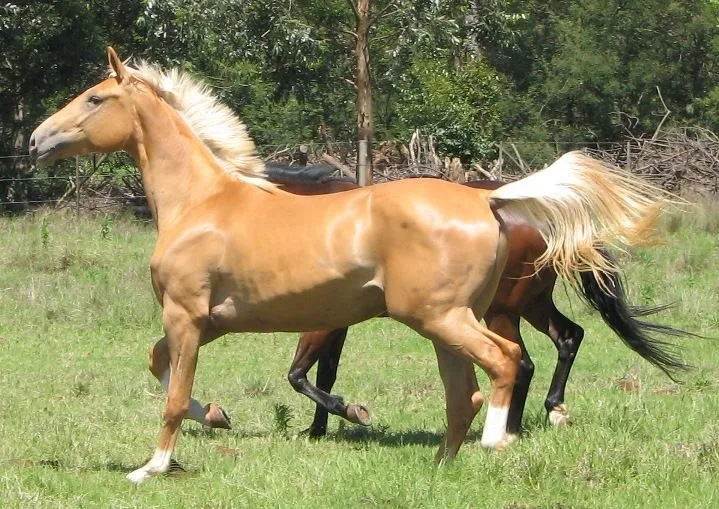
Understanding the Equine Pregnancy
Gestation Period in Horses
The gestation period in horses is a captivating journey that typically spans around 11 months, though it can vary slightly based on individual factors and breed characteristics. Mare owners and breeders eagerly anticipate the birth, counting down the days from conception to the highly anticipated foaling day. Understanding the duration of the gestation period is crucial for proper planning and ensuring that the mare receives the necessary care at each stage of pregnancy.
As a general guideline, most mares carry their foals for approximately 340 days, but variations between 320 and 370 days are not uncommon. Tracking the mare’s breeding dates and closely monitoring her condition are essential to estimating the expected foaling date and adjusting care routines accordingly.
Physical and Hormonal Changes in Pregnant Mares
Pregnancy triggers a cascade of physical and hormonal changes in mares as their bodies adapt to support the developing foal. Hormonal shifts, including increased levels of progesterone, play a pivotal role in maintaining pregnancy and preparing the mare for the upcoming birth.
Physically, the mare undergoes noticeable changes such as an increase in body weight and the enlargement of the abdomen. Monitoring and managing weight gain are essential components of mare care, as excessive weight can lead to complications during pregnancy and foaling. Additionally, the mare’s udder may gradually develop and become more prominent as it prepares for milk production.
Understanding these changes allows caretakers to tailor nutrition, exercise, and veterinary care to meet the specific needs of the pregnant mare at each stage of gestation.
Common Signs of Pregnancy in Mares
Identifying the signs of pregnancy in mares is crucial for timely and appropriate care. While some signs may be subtle, others become more evident as the pregnancy progresses. Common indicators include changes in behavior, such as increased docility or irritability, and alterations in appetite and eating habits. Mares may also exhibit a slight swelling of the vulva, and their belly may assume a more rounded appearance.
Veterinary assistance is often sought to confirm pregnancy, with ultrasound examinations providing a reliable method for detecting the presence of a developing foal. As caretakers, being attuned to these signs enables us to provide the necessary support and ensures that the mare’s journey through pregnancy is as smooth and comfortable as possible.
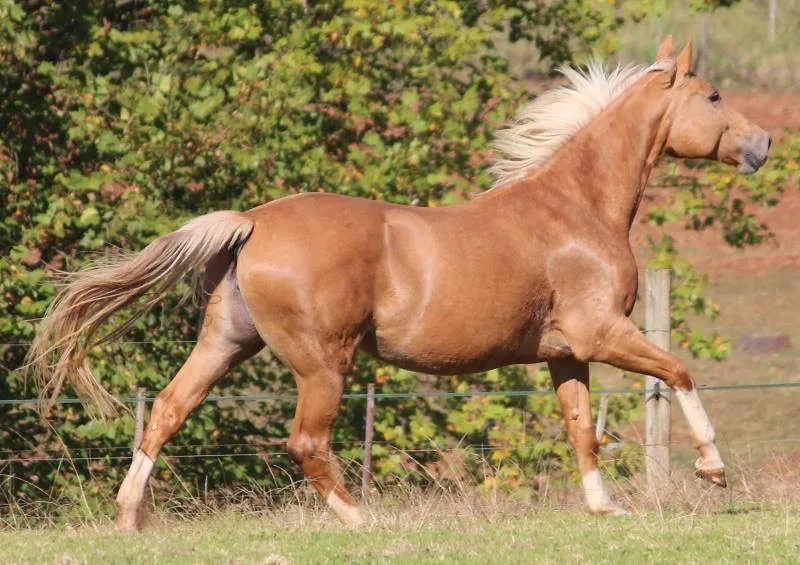
Nutrition and Diet
Importance of a Balanced Diet for Pregnant Mares
Maintaining a balanced and nutrient-rich diet for pregnant mares is paramount to ensure the health and optimal development of the growing foal. The significance of nutrition during this crucial period cannot be overstated, as the mare’s body undergoes substantial changes to support both her own needs and those of the developing fetus.
A well-balanced diet not only contributes to the overall well-being of the pregnant mare but also plays a pivotal role in preventing common issues such as malnutrition or obesity, which can lead to complications during pregnancy and foaling. Providing the mare with the right combination of carbohydrates, proteins, fats, vitamins, and minerals supports her energy requirements, aids in the development of the fetus, and prepares her body for the upcoming demands of lactation.
Key Nutrients Essential for Fetal Development
Several key nutrients play a crucial role in supporting the optimal growth and development of the foal during pregnancy. These include:
- Proteins: Essential for the development of muscles, tissues, and organs in the growing fetus.
- Calcium and Phosphorus: Vital for skeletal development and bone strength.
- Vitamins A, D, and E: Contribute to overall health, immune function, and proper bone development.
- Omega-3 Fatty Acids: Support the development of the foal’s nervous system and promote a healthy coat.
- Trace Minerals (e.g., copper, zinc, selenium): Essential for various metabolic processes and overall health.
Ensuring that the mare’s diet is rich in these nutrients is crucial for preventing developmental issues and ensuring the foal is born healthy and robust.
Dietary Adjustments Throughout Different Stages of Pregnancy
As the pregnancy progresses, the nutritional needs of the mare evolve, necessitating careful adjustments in her diet. During the early stages, maintenance of body condition and support of initial fetal growth are priorities. As the pregnancy advances, the mare’s energy requirements increase, particularly in the last trimester when the fetus experiences rapid growth.
Monitoring the mare’s body condition and weight is key to determining the appropriate adjustments in her diet. Increased energy demands may be met through the provision of high-quality forage, concentrated feeds, and supplementation as recommended by a veterinarian or equine nutritionist.
It’s important to note that individual variations exist, and factors such as breed, age, and health status can influence dietary needs. Regular consultations with a veterinarian or equine nutritionist help tailor the diet to the specific requirements of the pregnant mare, ensuring she receives optimal nutrition at each stage of her pregnancy.
By placing a strong emphasis on nutrition and diet, caretakers can contribute significantly to the well-being of both the pregnant mare and the developing foal, setting the stage for a healthy and successful pregnancy.
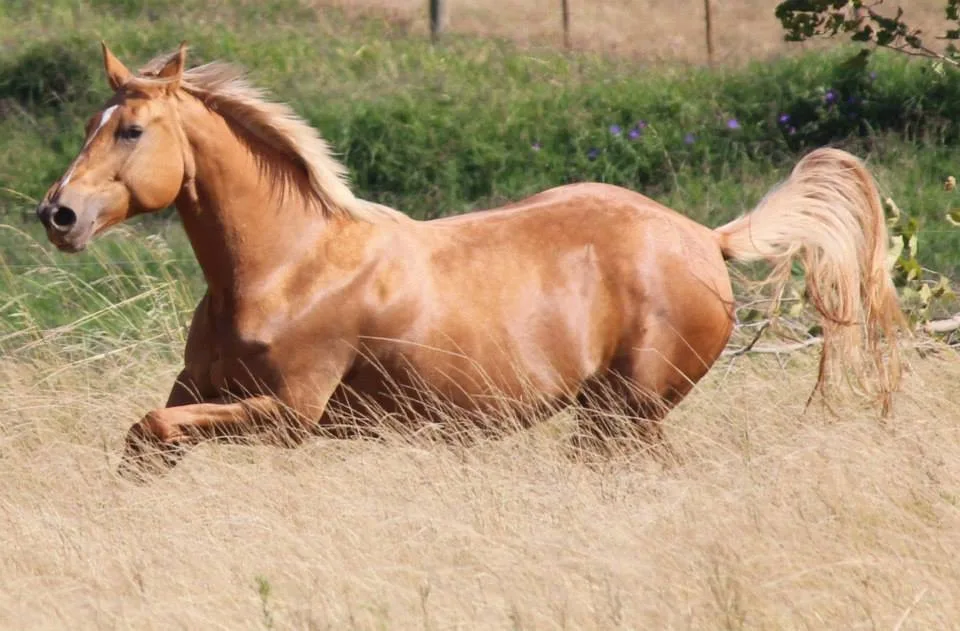
Veterinary Care and Monitoring
Regular Veterinary Check-ups During Pregnancy
Regular veterinary check-ups are an integral aspect of ensuring the health and well-being of the pregnant mare. These check-ups serve multiple purposes, allowing veterinarians to monitor the mare’s overall health, assess the progress of the pregnancy, and detect any potential issues early on.
During these check-ups, veterinarians typically perform a thorough physical examination, checking for signs of discomfort, abnormalities, or conditions that may impact the pregnancy. Regular monitoring allows for timely intervention if any health concerns arise, enabling the implementation of appropriate measures to safeguard both the mare and the developing foal.
Ultrasound Examinations and Their Significance
Ultrasound examinations play a crucial role in monitoring the progress of the pregnancy and assessing the health of the developing foal. These non-invasive procedures provide valuable insights into the mare’s reproductive system, allowing veterinarians to confirm the presence of a viable pregnancy, estimate the gestational age, and detect any potential complications.
Through ultrasound, veterinarians can visualize the developing fetus, monitor its growth and movement, and identify any abnormalities or developmental issues. Early detection of such issues enables informed decision-making regarding the management of the pregnancy and ensures the best possible outcome for both the mare and the foal.
Vaccinations and Preventive Healthcare Measures for Pregnant Mares
Maintaining the health of the pregnant mare involves not only monitoring her but also implementing preventive healthcare measures. Vaccinations are a crucial component of this strategy, helping protect the mare and the developing foal from infectious diseases that could pose a threat during pregnancy.
Routine vaccinations, adjusted to the specific needs of pregnant mares, aim to bolster the mare’s immune system and provide passive immunity to the foal through the transfer of antibodies in the colostrum. Vaccines against diseases such as influenza, rhinopneumonitis, and tetanus are commonly administered.
In addition to vaccinations, preventive healthcare measures may include deworming protocols tailored to the mare’s condition and nutritional requirements. Addressing dental care needs is also important, as proper dental health contributes to the mare’s overall well-being and the efficient utilization of nutrients.
By incorporating these veterinary care and preventive healthcare measures, caretakers can proactively manage the health of the pregnant mare, minimizing the risk of complications and supporting the optimal development of the foal. Regular collaboration with a knowledgeable veterinarian ensures that the mare receives personalized care throughout her pregnancy journey.
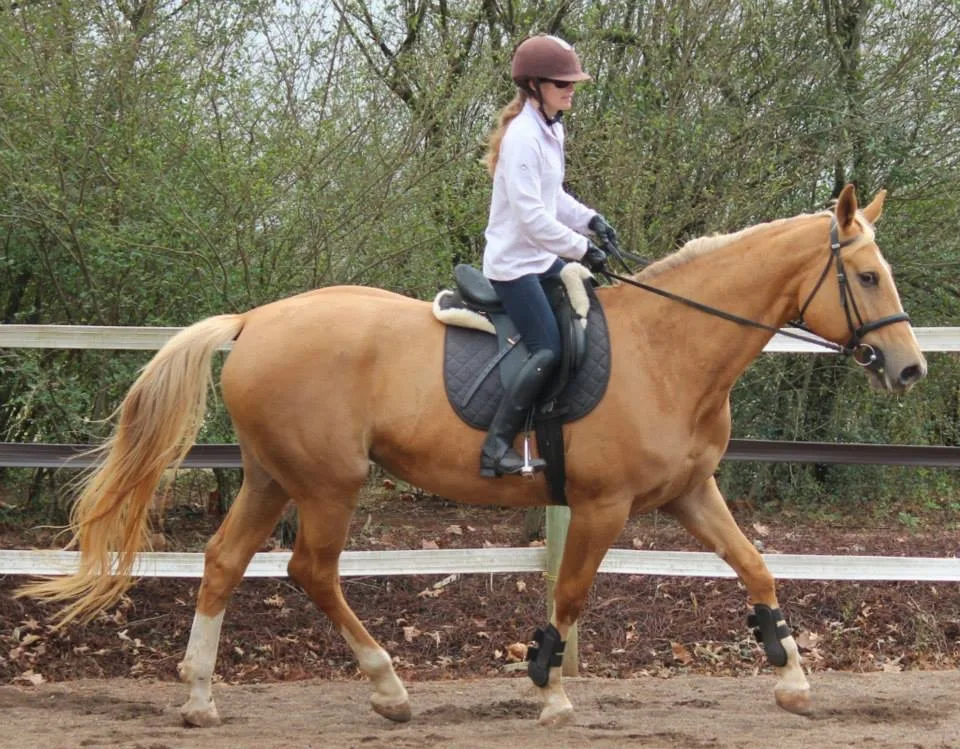
Exercise and Activity
Safe and Appropriate Exercise Routines for Pregnant Mares
Maintaining a proper exercise routine for pregnant mares is a crucial aspect of their overall care. However, it’s essential to tailor exercise to the specific needs of a pregnant mare, considering factors such as her age, fitness level, and any pre-existing health conditions. Safe and appropriate exercise routines typically include:
- Regular Turnout: Allowing the mare access to a spacious paddock or pasture for daily turnout promotes natural movement and encourages light exercise.
- Gentle Riding: Light riding, such as walking and slow trotting, can be beneficial for both the physical and mental well-being of the pregnant mare. However, it’s important to avoid strenuous activities or high-impact exercises.
- Groundwork: Engaging in groundwork exercises, such as leading and lunging, helps maintain muscle tone and flexibility without placing excessive strain on the mare.
Benefits of Maintaining Physical Activity During Pregnancy
Encouraging physical activity during pregnancy offers a range of benefits for both the mare and the developing foal. These benefits include:
- Improved Circulation: Regular, gentle exercise enhances blood circulation, promoting better nutrient delivery to the developing fetus.
- Muscle Tone Maintenance: Light exercise helps the mare maintain muscle tone, supporting overall physical health and reducing the risk of obesity-related complications.
- Mental Stimulation: Physical activity provides mental stimulation and helps alleviate stress, contributing to a positive emotional environment for the mare.
- Easier Foaling: Mares that are in good physical condition may experience an easier and less stressful foaling process.
Recognizing When to Adjust Exercise Levels
While physical activity is beneficial, recognizing when to adjust exercise levels is crucial to safeguard the well-being of the pregnant mare and the developing foal. Factors to consider include:
- Advanced Pregnancy: As the mare progresses through the later stages of pregnancy, particularly the last trimester, adjustments to the intensity and duration of exercise may be necessary.
- Health Conditions: If the mare develops any health issues or discomfort during pregnancy, exercise routines should be modified accordingly.
- Individual Variations: Each mare is unique, and their response to exercise can vary. Observing the mare’s behavior, gait, and overall demeanor helps caretakers gauge whether adjustments are needed.
- Consultation with Veterinarian: Regular communication with a veterinarian is essential to assess the mare’s condition and receive guidance on appropriate exercise levels throughout the pregnancy.
By striking a balance between maintaining physical activity and adjusting routines based on the specific needs of the pregnant mare, caretakers contribute to her overall health and ensure a positive environment for the developing foal. Regular monitoring and collaboration with a veterinarian are key to making informed decisions regarding exercise during pregnancy.
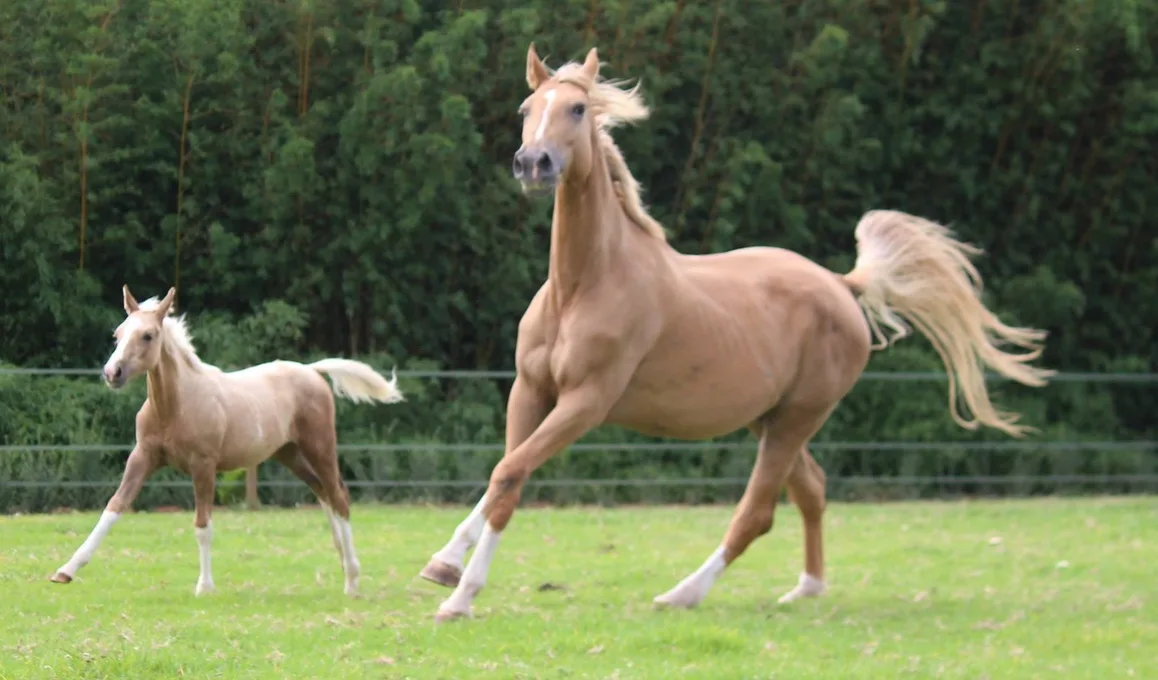
Environmental Considerations
Creating a Comfortable and Safe Environment for the Pregnant Mare
Creating a comfortable and safe environment for a pregnant mare is essential to ensure her well-being and the successful development of the foal. Considerations for an optimal environment include:
- Ample Space: Providing a spacious paddock or pasture allows the mare to move freely, encouraging natural behaviors and light exercise.
- Shelter: A well-constructed shelter, such as a run-in shed, offers protection from harsh weather conditions, ensuring the mare has a place to seek refuge from extreme temperatures, rain, or wind.
- Secure Fencing: Sturdy and secure fencing is crucial to prevent the mare from accidentally escaping or injuring herself. It also keeps unwanted visitors, such as aggressive horses, out of her space.
- Companionship: Mares are social animals, and providing suitable companionship, whether in the form of other horses or compatible animals, helps reduce stress and loneliness.
- Access to Clean Water: Adequate access to fresh, clean water is essential for the overall health of the pregnant mare and supports proper digestion and hydration.
Importance of Proper Stabling and Bedding
For mares that are stabled part of the time, ensuring proper stabling and bedding is crucial for their comfort and health. Consider the following factors:
- Clean and Well-Ventilated Stalls: Stalls should be kept clean, well-ventilated, and free from drafts. Good ventilation prevents respiratory issues and helps maintain a comfortable environment.
- Adequate Bedding: Providing ample bedding, such as straw or shavings, offers a soft and supportive surface for the mare to lie down. This is especially important during the later stages of pregnancy when the mare may spend more time resting.
- Regular Cleaning: Regularly removing soiled bedding and keeping the stall clean reduces the risk of infections and creates a more sanitary living space.
- Proper Stall Size: Ensure the stall size is appropriate for the mare’s comfort and safety, allowing her to lie down, stand, and move without restriction.
Minimizing Stress Factors During Pregnancy
Minimizing stress is paramount for the well-being of the pregnant mare and the developing foal. Stress can have adverse effects on pregnancy and may contribute to complications. Strategies for minimizing stress include:
- Routine and Consistency: Maintaining a consistent daily routine provides a sense of security for the mare, reducing stress associated with uncertainty.
- Gentle Handling: Handling the mare with gentleness and patience helps build trust and minimizes stress during interactions, such as grooming, veterinary examinations, or hoof care.
- Social Interaction: Allowing the mare to interact with other horses or providing companionship helps alleviate feelings of isolation and loneliness.
- Quiet Environment: Minimizing loud noises and sudden disturbances creates a calm environment that contributes to the mare’s emotional well-being.
By carefully considering and addressing these environmental factors, caretakers contribute to the overall health and contentment of the pregnant mare, fostering an environment conducive to a successful pregnancy and the well-being of the foal. Regular observation and adjustments based on the mare’s needs further enhance her comfort and reduce stress factors.
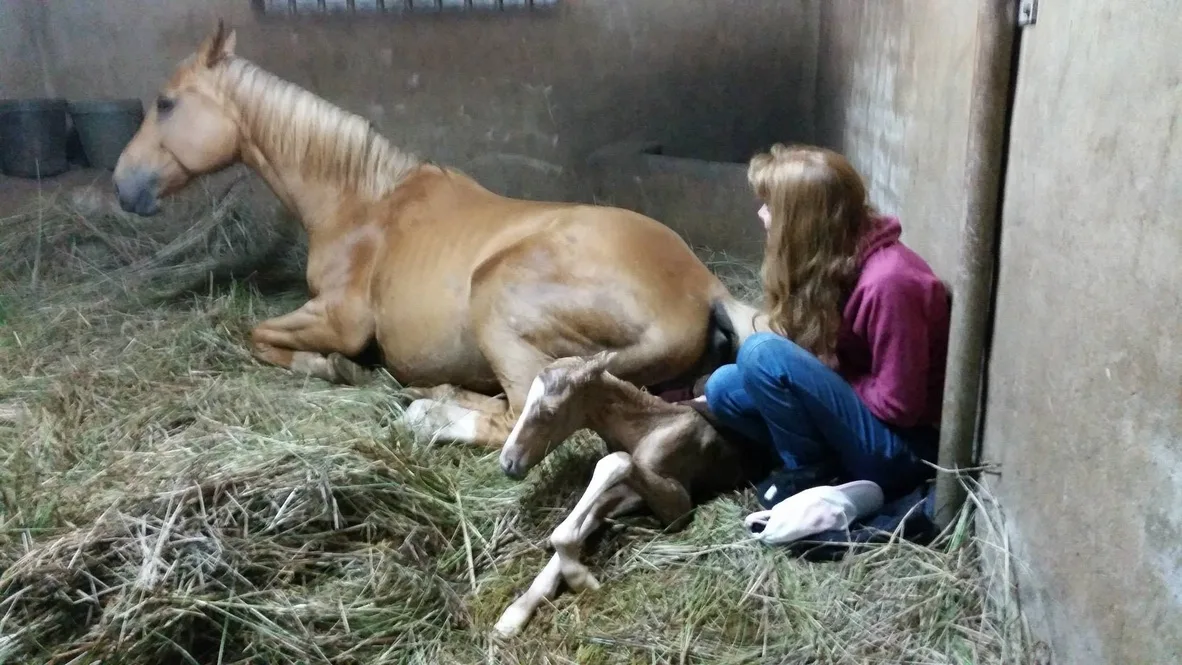
Preparing for Foaling
Understanding the Signs of Impending Labor
Recognizing the signs of impending labor is crucial for ensuring a smooth and successful foaling process. Key indicators that the mare is approaching labor include:
- Changes in Behavior: Restlessness, pacing, and increased vocalization can be indicative of the mare’s discomfort as she prepares for foaling.
- Enlargement and Relaxation of the Vulva: The vulva may appear enlarged and relaxed as the mare’s body prepares for the passage of the foal.
- Development of the Mammary Glands: The udder may fill with milk, and the teats may become distended, signaling that the mare is getting ready to nurse the foal.
- Waxing of the Teats: A waxy substance may appear on the tips of the teats, indicating that the mare is close to foaling.
- Changes in the Mare’s Stance: The mare may adopt a different stance, with tail-raising and squatting becoming more frequent as labor approaches.
Being familiar with these signs allows caretakers to monitor the mare closely and intervene promptly if needed.
Setting Up a Foaling Area and Necessary Equipment
Creating a well-prepared foaling area and assembling the necessary equipment are essential steps in ensuring a safe and comfortable environment for both the mare and the foal. Considerations for setting up a foaling area include:
- Clean and Bedded Stall: Ensure the foaling stall is clean, well-bedded, and free from drafts. Adequate bedding helps provide a soft surface for the foal to lie on after birth.
- Cameras for Surveillance: Installing cameras in the foaling area allows caretakers to monitor the mare remotely, enabling timely intervention if complications arise.
- Foaling Kit: Prepare a foaling kit that includes essential supplies such as clean towels, iodine solution for navel disinfection, gloves, and a flashlight for visibility.
- Emergency Contact Information: Have contact information for the veterinarian readily available in case assistance is needed during foaling.
- Comfortable and Safe Area: Ensure the foaling area is secure, minimizing potential hazards that could pose a risk to the mare or foal.
Developing a Foaling Plan with Your Veterinarian
Collaborating with a veterinarian to develop a foaling plan is a proactive approach to addressing potential complications and ensuring the best possible outcome. The foaling plan may include:
- Scheduled Veterinary Check-ups: Establish a schedule for veterinary check-ups as the due date approaches, allowing the veterinarian to assess the mare’s readiness for foaling.
- Emergency Contact Protocol: Clearly define the steps to take and whom to contact in case of an emergency during foaling.
- Discussion of Possible Complications: Have a thorough discussion with the veterinarian about potential complications that may arise during foaling and the corresponding action plans.
- Post-Foaling Care: Develop a plan for the immediate care of the newborn foal, including monitoring vital signs, ensuring successful nursing, and administering necessary preventive measures.
By actively involving the veterinarian in the foaling process and having a well-thought-out plan in place, caretakers can navigate the complexities of foaling with confidence, providing optimal care for both the mare and the newborn foal. Regular communication and collaboration with the veterinarian contribute to a successful foaling experience.

Emotional Well-being of the Mare
Recognizing and Addressing Emotional Stress in Pregnant Mares
Recognizing and addressing emotional stress in pregnant mares is crucial for maintaining their overall well-being and ensuring a positive environment for the developing foal. Signs of emotional stress in pregnant mares may include:
- Behavioral Changes: Unusual aggression, restlessness, or withdrawal from social interactions with other horses can indicate emotional distress.
- Altered Eating Habits: A decrease in appetite or changes in eating habits may be a sign of stress or discomfort.
- Excessive Vocalization: Mares may express emotional stress through increased vocalization, such as frequent neighing or whinnying.
- Pacing or Repetitive Movements: Restless pacing or engaging in repetitive behaviors may indicate heightened anxiety.
Addressing emotional stress involves identifying and mitigating potential stressors. Common stressors include changes in routine, social isolation, or exposure to loud or unfamiliar stimuli. Providing a stable routine, maintaining social interactions, and creating a calm environment can help alleviate emotional stress in pregnant mares.
Bonding and Interaction Between the Mare and Owner
Establishing a strong bond between the mare and owner is beneficial for both emotional well-being and effective care. Bonding can be fostered through:
- Gentle Handling: Approach the mare with patience and gentleness, especially during interactions like grooming or feeding.
- Spending Quality Time: Dedicate time for positive interactions, whether it’s through hand-grazing, grooming sessions, or simply spending time in the mare’s company.
- Observation and Understanding: Pay close attention to the mare’s body language and behaviors, allowing for a deeper understanding of her needs and preferences.
- Positive Reinforcement: Use positive reinforcement, such as treats or praise, to create positive associations with interactions and care routines.
A strong bond between the mare and owner contributes to the mare’s sense of security and reduces stress levels, fostering a positive emotional state throughout pregnancy.
The Impact of a Positive Emotional Environment on the Foal
The emotional well-being of the pregnant mare has a direct impact on the developing foal. A positive emotional environment influences the foal in various ways:
- Hormonal Regulation: The mare’s emotional state can affect hormonal balance, influencing the hormonal environment in which the foal develops.
- Behavioral Development: Foals born to mares experiencing low-stress levels during pregnancy may exhibit more positive behaviors and adapt more easily to new situations.
- Bonding and Trust: Foals that are born to mares with a positive emotional bond to their owners often display trust and ease in human interactions from an early age.
- Overall Well-being: A positive emotional environment contributes to a healthier and more content foal, positively influencing its growth and development.
Creating and maintaining a positive emotional environment for the pregnant mare, characterized by trust, care, and understanding, sets the stage for the foal’s emotional well-being and contributes to the overall success of the breeding process. Regular attention to the emotional needs of the mare and intentional efforts to strengthen the bond between the mare and owner result in a harmonious and nurturing atmosphere for both mare and foal.
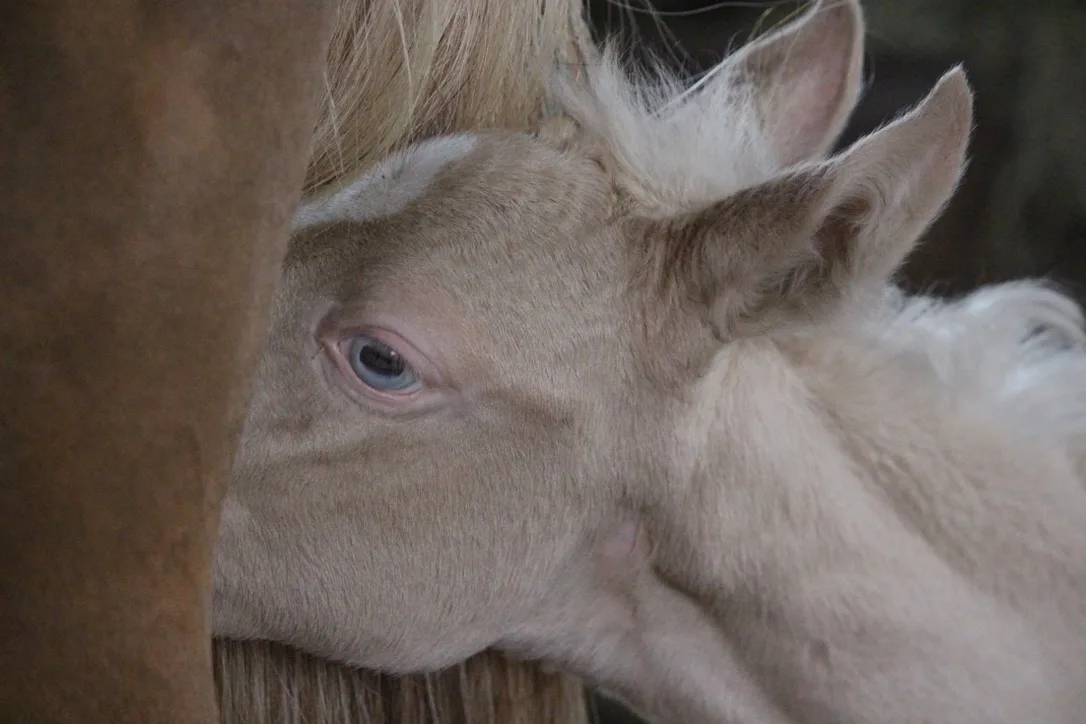
Postnatal Care
Immediate Care for the Newborn Foal
The immediate care for the newborn foal is a critical phase that sets the foundation for its health and well-being. Key aspects of immediate care include:
- Drying and Warming: Ensure the foal is promptly dried to prevent chilling. Use clean towels or straw to remove amniotic fluid and stimulate circulation. If necessary, provide supplemental warmth through heat lamps or blankets.
- Navel Disinfection: Apply iodine solution to the foal’s navel to prevent infection. Proper navel care is essential in minimizing the risk of bacterial entry.
- Assessment of Vital Signs: Monitor the foal’s vital signs, including heart rate, respiratory rate, and body temperature. Normal ranges vary, so having a baseline for the individual foal is crucial.
- Ensuring Early Nursing: Encourage the foal to stand and nurse from the mare within the first few hours of life. Colostrum intake is vital for the foal’s immune system development.
- Veterinary Examination: Schedule a veterinary examination to assess the overall health of the foal and address any potential issues early on.
Monitoring the Mare’s Health Post-Foaling
While much attention is rightfully given to the newborn foal, monitoring the mare’s health post-foaling is equally important. Key considerations include:
- Uterine Involution: Ensuring the mare’s uterus returns to its normal size is critical for her recovery. Veterinary examinations can confirm the progress of uterine involution.
- Monitoring for Complications: Watch for signs of complications such as retained placenta, uterine infections, or postpartum hemorrhage. Early detection and intervention are crucial in preventing serious issues.
- Post-Foaling Nutrition: Adjust the mare’s diet to support lactation and recovery. Proper nutrition is vital for both the mare’s health and the quality of her milk.
- Observation for Behavioral Changes: Monitor the mare’s behavior for signs of distress, discomfort, or abnormal behaviors. Any behavioral changes may indicate underlying health issues.
Ensuring a Smooth Transition for the Mare and Foal
Ensuring a smooth transition for the mare and foal involves thoughtful management practices that promote their well-being:
- Establishing Bonding: Allow the mare and foal ample time to bond naturally. Encourage positive interactions and minimize disturbances during this crucial bonding period.
- Maintaining a Clean Environment: Ensure the foaling area remains clean and comfortable. Regular cleaning and bedding adjustments contribute to a healthy environment.
- Social Integration: If possible, allow the mare and foal to interact with other horses in a controlled and supervised manner. Social integration is beneficial for the foal’s development and the mare’s mental well-being.
- Gradual Introduction to Solid Feed: As the foal grows, gradually introduce solid feed in addition to nursing. This transition supports the foal’s nutritional needs and prepares it for weaning.
- Regular Veterinary Check-ups: Schedule regular veterinary check-ups for both the mare and foal to monitor their ongoing health and address any emerging concerns.
By focusing on immediate care, vigilant monitoring, and thoughtful management practices, caretakers contribute to the well-being of both the mare and foal, setting the stage for a successful postnatal period and a healthy start to the foal’s life. Regular communication with a veterinarian ensures that any issues are identified and addressed promptly.
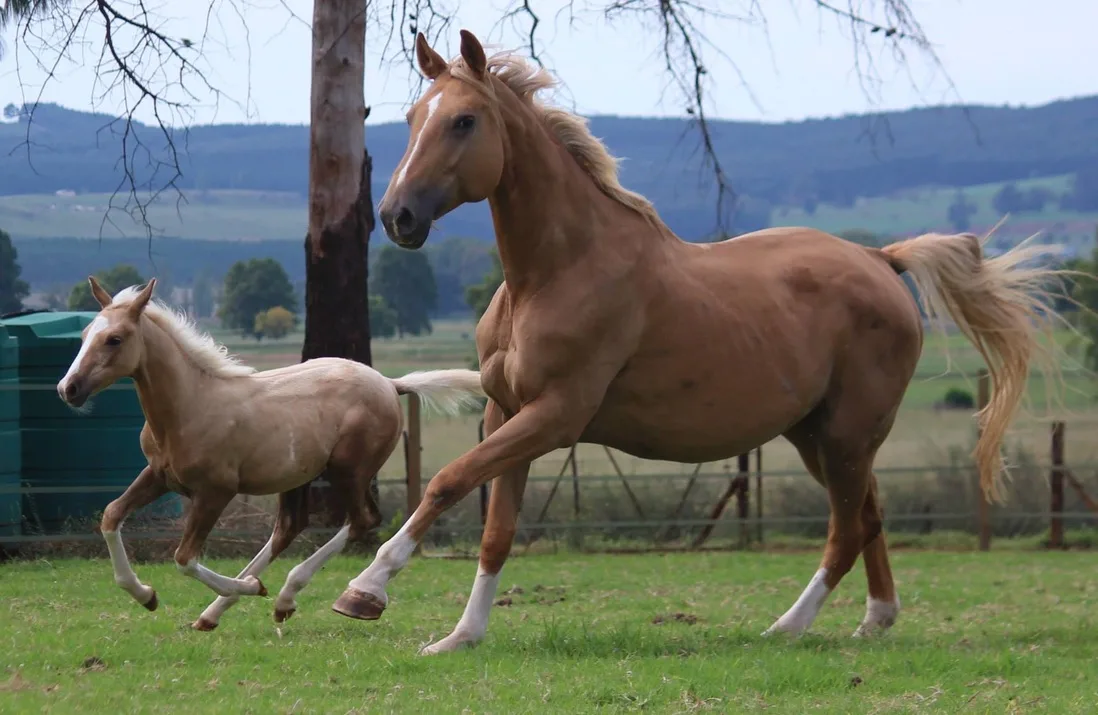
Conclusion
Recap of the Essential Aspects of Mare Care During Pregnancy
In concluding our exploration of mare care during pregnancy, it’s crucial to recap the essential aspects that contribute to the health and well-being of both the mare and the developing foal. These include:
- Nutrition: Providing a balanced and nutrient-rich diet tailored to the mare’s changing needs throughout pregnancy is fundamental for the optimal development of the foal.
- Veterinary Care: Regular check-ups and ultrasounds with a veterinarian allow for the monitoring of the mare’s health, early detection of potential issues, and confirmation of the progress of the pregnancy.
- Exercise and Activity: Safe and appropriate exercise routines help maintain the mare’s physical well-being and support the overall health of the foal.
- Environmental Considerations: Creating a comfortable and stress-free environment, whether in a pasture or a stable, contributes to the emotional well-being of the mare and fosters a positive atmosphere for the foal.
- Emotional Well-being: Recognizing and addressing emotional stress in pregnant mares, fostering a bond between the mare and owner, and ensuring a positive emotional environment all play integral roles in the overall care of the mare and foal.
- Foaling Preparation: Understanding the signs of impending labor, setting up a proper foaling area, and collaborating with a veterinarian to develop a foaling plan contribute to a successful foaling experience.
- Postnatal Care: Immediate care for the newborn foal, ongoing monitoring of the mare’s health, and thoughtful practices for a smooth transition are vital components of postnatal care.
The Long-Term Impact of Proper Care on the Health of Both Mare and Foal
The impact of proper care during pregnancy extends far beyond the immediate foaling period. It shapes the long-term health and vitality of both the mare and the foal. A well-nourished mare that receives adequate veterinary attention and emotional support is more likely to produce a robust foal with a strong immune system and a sound constitution. Additionally, the positive physical and emotional experiences during pregnancy can influence the mare’s behavior and the foal’s temperament, setting the stage for a positive and cooperative relationship between the two.
Investing in proper care during pregnancy pays dividends in the form of healthier and happier horses, contributing to the success of breeding programs and the overall well-being of the equine community.
Encouragement for Responsible and Attentive Mare Owners
In conclusion, a call to action is extended to all mare owners and caretakers to embrace the responsibilities that come with expecting a foal. By being vigilant, knowledgeable, and proactive in the care of pregnant mares, owners play a pivotal role in shaping the future health and success of the foal. The equine-human bond is a partnership, and through responsible and attentive mare care, we not only contribute to the welfare of these magnificent animals but also celebrate the beauty of new life and the enduring connection between humans and horses.
May this journey of expectation and care be marked not only by the joy of foaling but also by a commitment to the well-being of these majestic creatures who share our lives and enrich our experiences with their presence.
further reading
Assuring the Health and Well-Being of the Pregnant Mare.She should always have plenty of clean, fresh water. The mare will also benefit from routine hoof and dental care, standard vaccinations and regular deworming.
How to take care of a pregnant mareGood stable hygiene is particularly important. So ideally, you’ll house your mare separately, or with other pregnant mares. If that’s not possible, choose the …
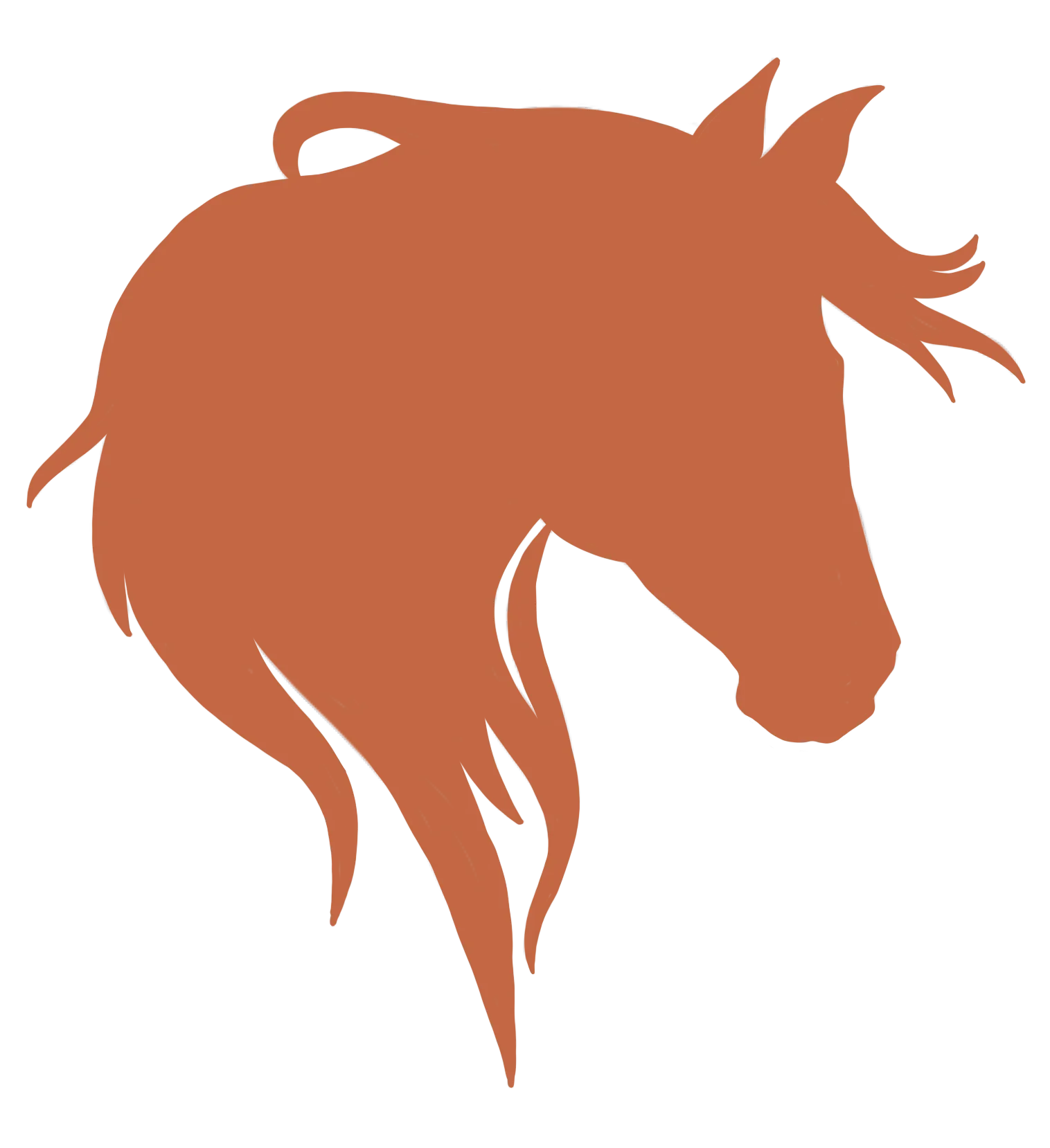
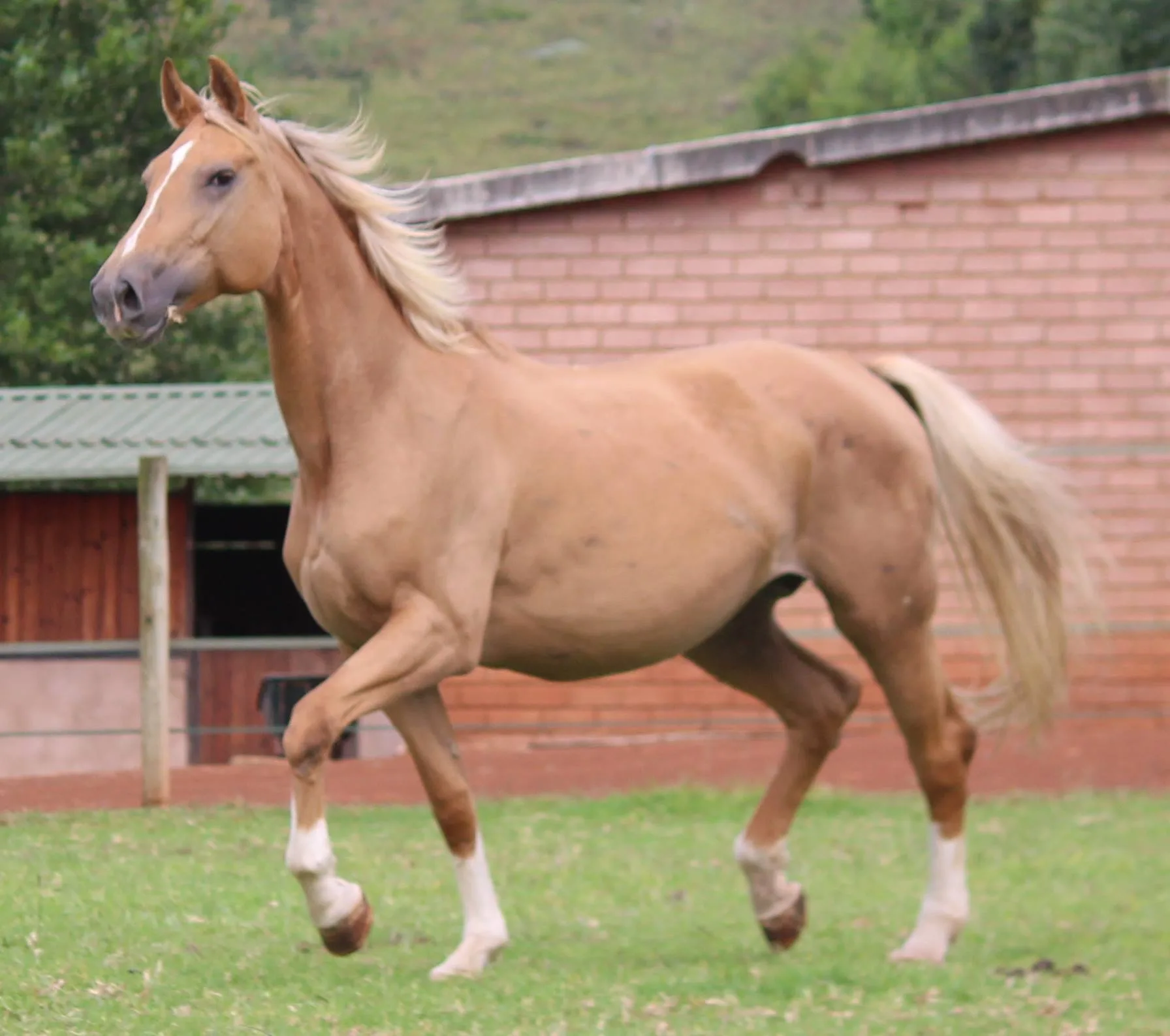
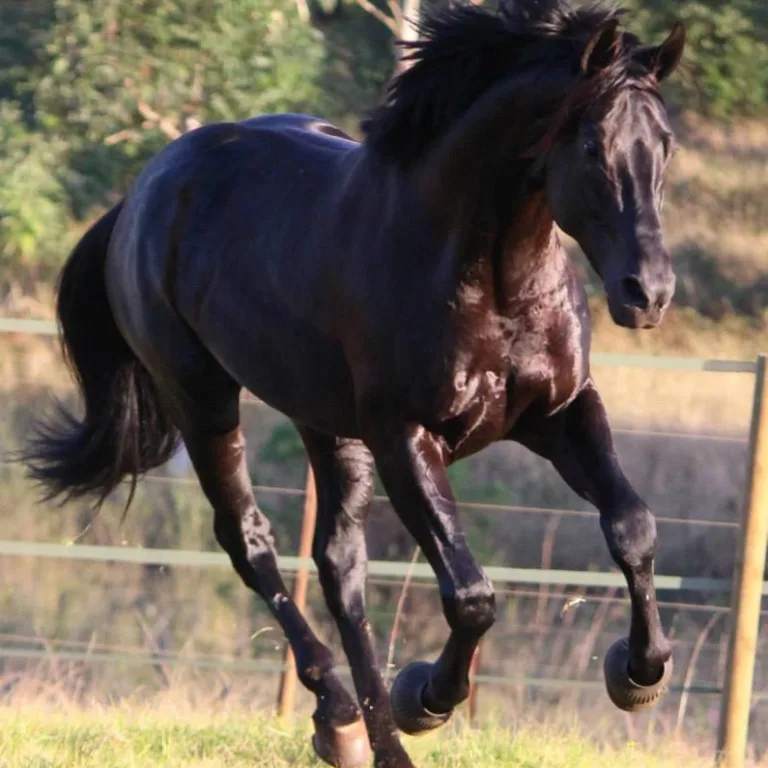
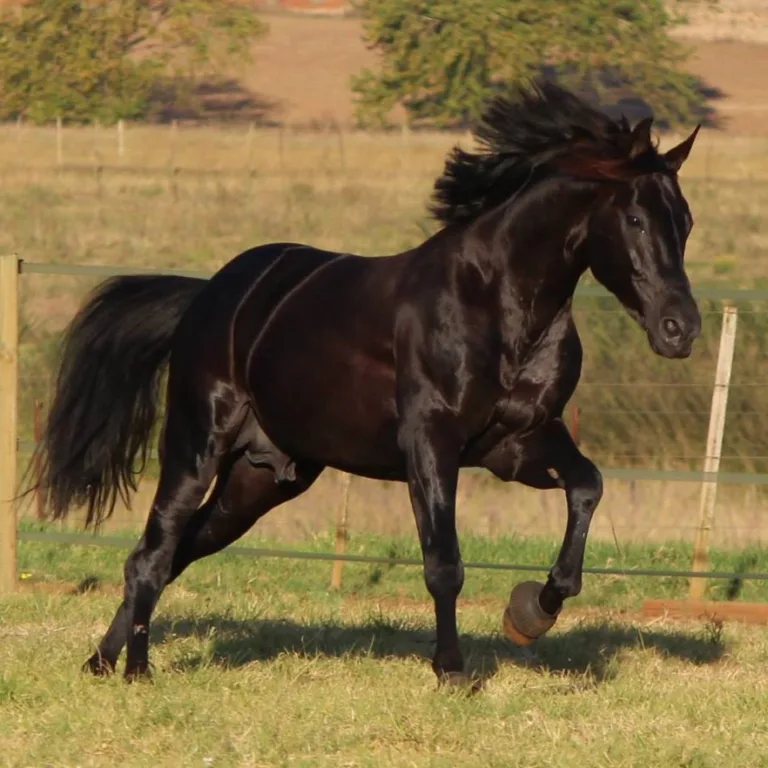
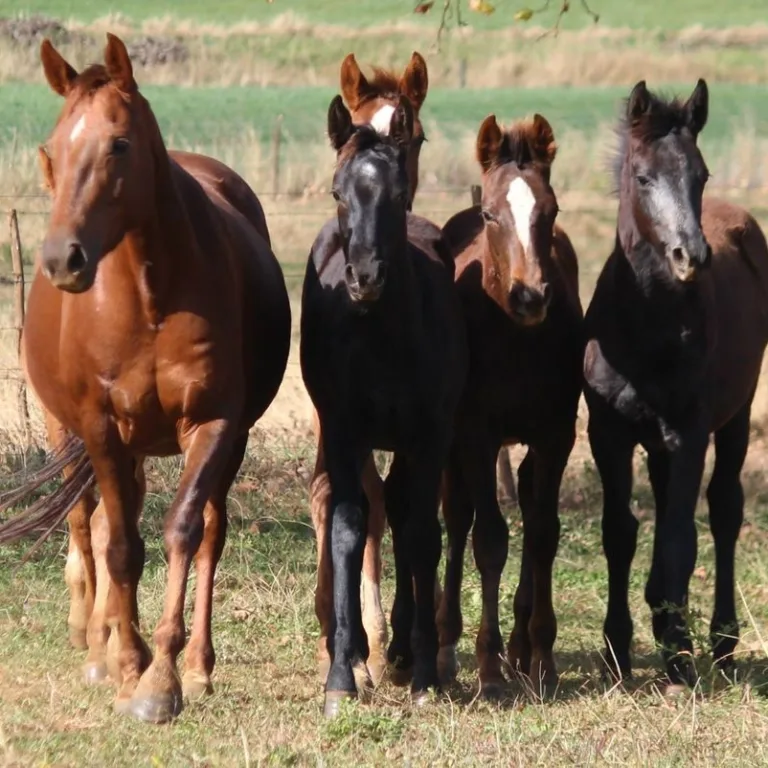
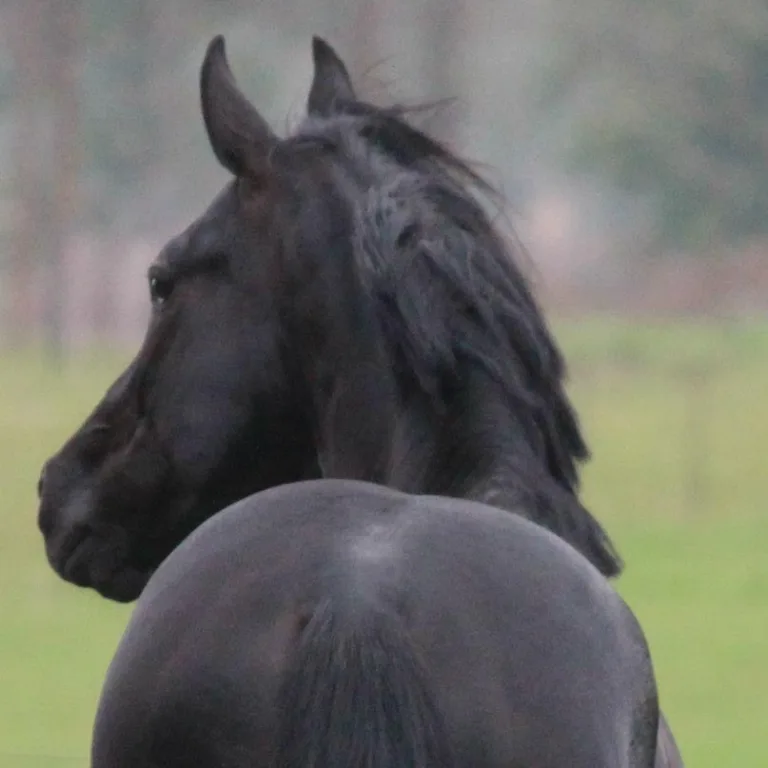
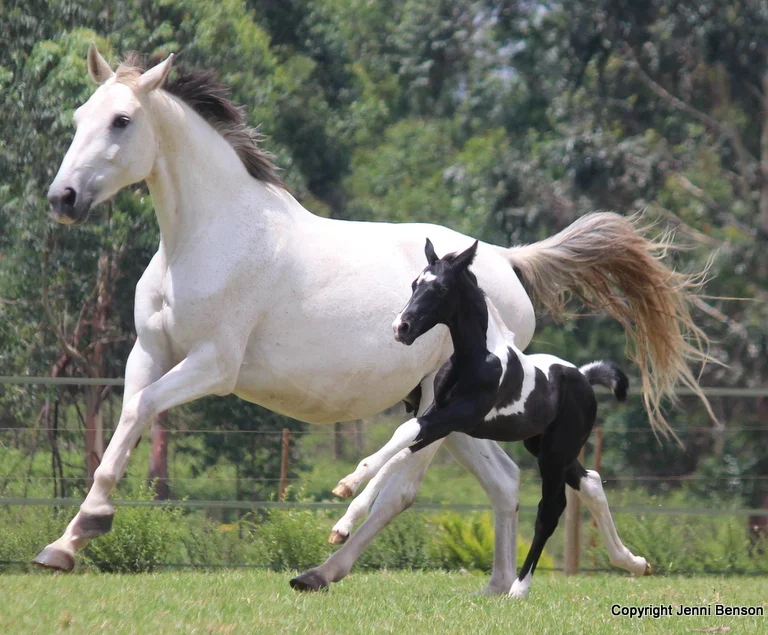
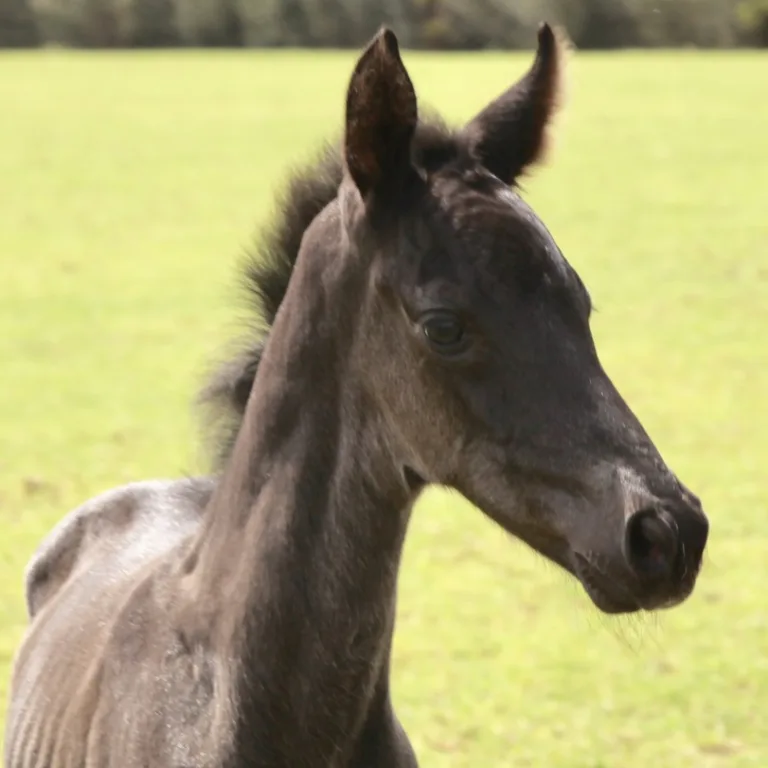
3 Comments